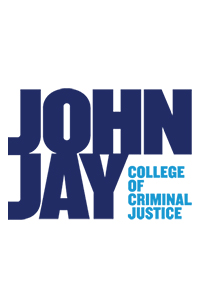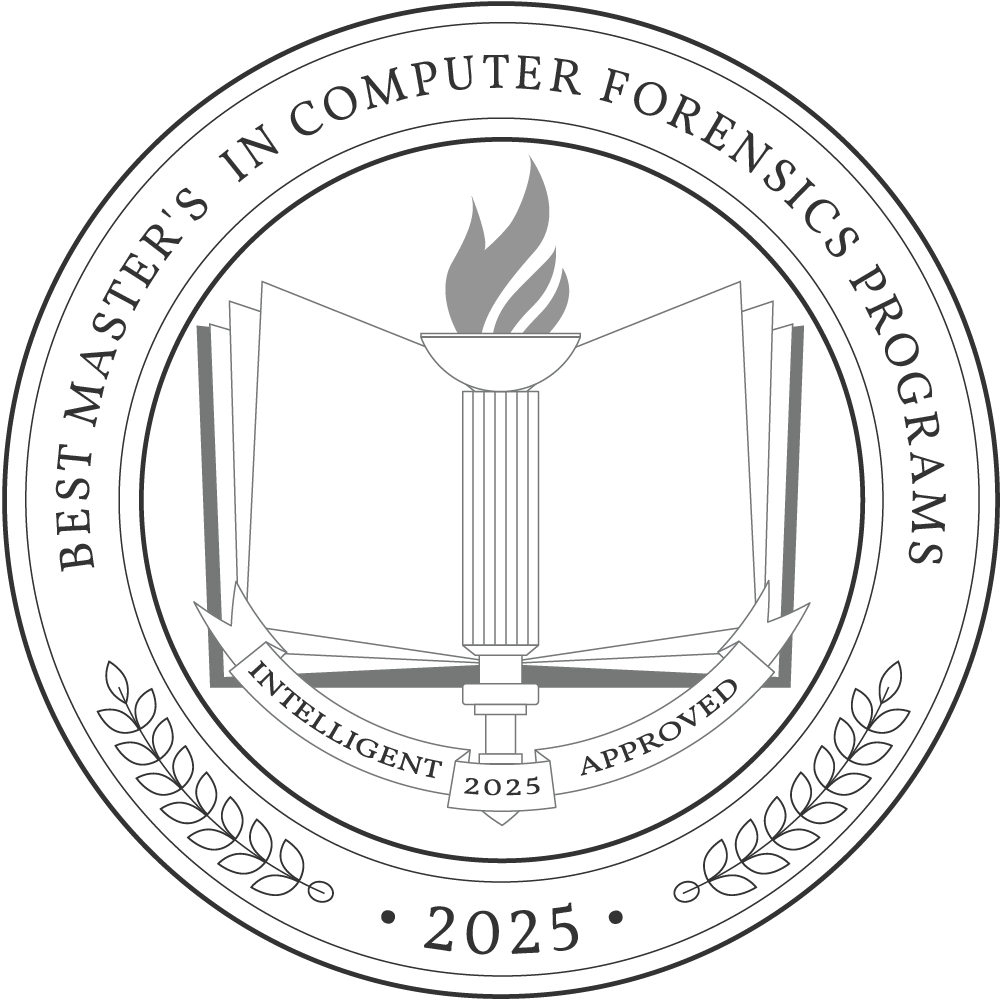Computer science is one of the fastest-growing fields with a higher-than-average job outlook. A master’s in computer forensics program prepares students to assess information vulnerabilities, gather evidence as expert witnesses, and prevent cybersecurity threats.
Graduates of the program go on to work in information technology as:
- Information security, cyber security, or forensic analysts
- Security administrators or managers
- Cybersecurity specialists
- Computer forensic examiners
- Vulnerability researchers or exploit developers
Information computer analysts earn an average annual salary of $112,000, and computer and information research scientists earn an average salary of $136,620.
A master’s in computer forensics takes about two years of full-time attendance and requires 30 course credits. In 2022, the average yearly tuition at a public institution was $12,596.
Why Trust Us
The Intelligent.com Higher Education Team is dedicated to providing students with independent, equitable school and program rankings and well-researched resources. Our expert-driven articles cover topics related to online colleges and programs, paying for school, and career outlooks. We use data from the U.S. Department of Education’s College Scorecard, the National Center for Education Statistics, and other reputable educational and professional organizations. Our academic advisory team reviews content and verifies accuracy throughout the year for the most current information. Partnerships do not influence rankings or editorial decisions.
- Analyzed over 2,000 national, accredited, and nonprofit colleges and universities
- 800+ rankings pages are reviewed and updated yearly
- Content is informed by reputable sources, surveys, and interviews with academic advisors and other experts
- Over 100 data points are reviewed for accuracy and quality throughout the year, including sources
How we rank schools
Our list features the best Computer Forensics degree programs at top colleges nationwide. Each school featured is a nonprofit, accredited institution — either public or private — with a high standard of academic quality for post-secondary institutions.
We evaluated each school’s program on tuition costs, admission, retention and graduation rates, faculty, reputation, and the student resources provided for online students. We collected data from trusted sources like the National Center for Education Statistics, individual school and program websites, school admissions counselors, and other data sources. Then, we calculated the Intelligent Score on a scale of 0 to 100 based on the following criterion:
Academic Quality:
- Admission rate versus enrollment rate
- Retention rate of students who return after year one
- Accreditation status (regional and programmatic)
- Nonprofit status, both private and public institutions
Graduation Rate
- Overall graduation rate
- Total number of currently enrolled students, including diversity metrics
- Student-to-faculty ratio
Cost and ROI
- In-state and out-of-state per-credit tuition rates and fees
- Required credits to graduate
- Earning potential after graduation
- Availability of federal student loans, scholarships, and other financial aid options
Student Resources
- Available student services for online-only and hybrid programs
- On-campus amenities like tutoring centers and the number of libraries
Read more about our ranking methodology.
Best 7 Accredited Master’s in Computer Forensics Degree Programs
FiltersInstitution Type
Status
- Intelligent Score
- Alphabetically By University Name
- Acceptance Rate
- Enrollment
- In-state Graduate Tuition
- Out-of-state Graduate Tuition
- In-state Undergraduate Tuition
- Out-of-state Undergraduate Tuition

University of the Cumberlands
Intelligent Score: 99.87In-state: $9,875
Out-of-state: $9,875
In-state: $4,282
Out-of-state: $4,282
SAT: 930-1140
ACT: 19-24
$549
Hybrid
Southern Association of Colleges and Schools Commission on Colleges
31

University of Central Florida
Intelligent Score: 98.70In-state: $4,478
Out-of-state: $19,810
In-state: $6,916
Out-of-state: $6,916
SAT: 1160-1340
ACT: 25-30
In-State: $369
Out-of-State: $1,194
On-Campus
Accreditation Board for Engineering and Technology
30

George Mason University
Intelligent Score: 96.16In-state: $9,510
Out-of-state: $32,970
In-state: $12,594
Out-of-state: $12,594
SAT: 1100-1300
ACT: 24-30
In-State: $692
Out-of-State: $1,486
On-Campus
Accreditation Board for Engineering and Technology
30

John Jay College of Criminal Justice
Intelligent Score: 95.14In-state: $32,657
Out-of-state: $40,607
In-state: $40,813
Out-of-state: $40,813
SAT: 920-1060
ACT: 17-21
Resident: $470
Non-Resident: $855
On-Campus
Middle States Commission on Higher Education
36

University of Baltimore
Intelligent Score: 94.41In-state: $7,014
Out-of-state: $19,374
In-state: $13,824
Out-of-state: $13,824
SAT: 930-1078
ACT: 19-31
In-State: $820
Out-of-State: $1,203
On-Campus
Middle States Commission on Higher Education
30

University of Central Oklahoma
Intelligent Score: 94.28In-state: $6,686
Out-of-state: $17,573
In-state: $7,000
Out-of-state: $7,000
SAT: N/A
ACT: 18-24
Resident: $317
Non-Resident: $417
On-Campus
Accreditation Board for Engineering and Technology
30-36

University of South Florida
Intelligent Score: 93.74In-state: $4,559
Out-of-state: $15,473
In-state: $8,350
Out-of-state: $8,350
SAT: 1160-1320
ACT: 25-30
Resident: $347
Non-Resident: $431
On-Campus
Accreditation Board for Engineering and Technology
30
How to Choose a Master’s in Computer Forensics Degree Program
Choose your area of study
First, consider your personal and career goals and logistical needs. These will influence your program choice. Most master’s in computer forensic programs require a bachelor’s degree in science with a focus in STEM computer science, computer engineering, or information technology (IT). Graduates earn a master’s in computer science or a master’s in computer and information technology.
Students focus on information security, computer and information research analysis, or cyber forensics.
Research schools and programs
When narrowing your selection, focus on school accreditation to maximize your chances of achieving your career goals. Accrediting agencies evaluate programs to ensure they meet a quality level in education and guide students toward a successful career path. Accreditation allows students to transfer credits between institutions.
There are two primary distinctions: institutional and program accreditations. Institutional accreditations include regional and national. Programmatic accreditation is specific to the program and separate from the institution’s accreditation. Some programs have no accreditation, while others have multiple from different agencies.
Visit the school in person or attend an in-person or virtual open house to gain a better understanding of the school or program’s student culture and support systems.
Prepare for tests and applications
Students applying to a master’s in computer forensics can expect to provide their transcripts and test scores, letters of recommendation from internships or current employers, and short answer or essay questions.
Most schools use an online application system. Prepare your information by uploading it into a compatible digital format like PDF. Your essay, personal statement, or short answers should address why the school or program will help you pursue your career goals.
Contact the program administrator or admissions counselor for the most accurate admissions information.
Select your program
Once you receive acceptance letters, you can refine your selection process. Consider the parameters for logistical needs you initially set, and confirm they align with your personal and career goals. For example, determine whether a synchronous, asynchronous, or hybrid format is suitable for you. Online studies afford many students flexibility, but there are formats for every learning style.
Determine how you’ll pay for your degree
Computer forensics is in high demand, and there are more funding opportunities than in other industries. For example, the United States Department of Defense (DoD) has a Cyber Scholarship Program to recruit and retain students attaining a degree at any National Center of Academic Excellence in cyber defense research, cyber operations, or cybersecurity.
If you have undergraduate work experience, your employer may offer employer tuition assistance benefits. The eligibility criteria for these programs are usually performance-based and involve a commitment to work for the company for a specified term after graduation.
What Can You Expect From a Master’s in Computer Forensics Degree Program?
Students learn digital forensic law, data evidence collection methods, and how to be an expert witness in computer forensics. They also learn to probe and penetrate networks to assess an organization’s vulnerabilities.
A master’s in computer forensics requires an average of 30 credits to attain and 15 to 18 months to complete. This fast-growing field offers many internship opportunities that benefit students by providing real-world skills application.
Most master’s degree programs require the completion of a thesis or capstone project. In many cases, it is a requirement for advanced research and for those wishing to pursue a doctoral degree.
Potential courses you’ll take in a master’s in computer forensics degree program
- Cyber Forensics. Cyber forensic courses cover the methods of a computer forensics investigation, including evidence collection and evaluation and the use of various forensic tools. Students learn legal procedures for acquiring court-admissible chains of evidence. Additional topics include detailed analysis of removable storage media, hard disks, and file systems.
- Legal and Ethical Issues in Information Technology. Students learn about the ethical and legal considerations in IT. They examine privacy concerns, intellectual property, payment systems, digital signatures, system abuse, and business torts. It also covers criminal liability issues, including fraud, hacking, and computer trespassing.
- Vulnerability Analysis and Control. This course teaches students critical skills to probe, penetrate, and hack other networks. Methods include using open-source and freeware tools and penetration testing to detect vulnerabilities in networks of computers, operating systems, and applications.
- Digital Evidence. Digital evidence courses present the fundamental principles and concepts of conducting digital investigations and presenting the evidence in court. Students learn ethics, legal terminology, investigative procedures, chain of custody, and digital evidence controls. The course also teaches the techniques and methods for obtaining and preserving digital information for use as an expert witness in a judicial proceeding.
Master’s in Computer Forensics Degree Frequently Asked Questions
How do I apply to a master's in computer forensics degree program?
Each application process is specific to the institution. Carefully review the instructions on the program website, and speak with an admissions counselor for the most accurate information before applying. Many institutions use online application systems and request that your school submit your official undergraduate transcripts through the electronic transcript service.
Most graduate programs require a bachelor’s degree from an accredited institution and a minimum grade point average. Other application materials include your transcripts, a resume, letters of recommendation from internship and field-related employers, and a personal essay detailing why you are a good candidate for the program and how it will help your career goals.
How much does a master's in computer forensics degree cost?
A master’s in computer forensics can cost $12,596 at a public institution and $28,017 at a private institution. Those costs are an average per year for tuition and do not include your room or board, food, transportation, and additional program-related expenses. Options for financial aid increase with accredited programs and schools. Without financial aid, a less expensive tuition may translate to more out-of-pocket costs.
How long does it take to earn a master's in computer forensics degree?
In a 30-credit program, you can expect to finish in two years with full-time attendance.
Online courses offer students flexibility and the opportunity to finish quickly or take their time. Some online programs offer a general course completion date, motivating students to finish early. On-campus programs, on the other hand, may have a set schedule, but many students enjoy the culture and benefit from the camaraderie of in-person interaction.

